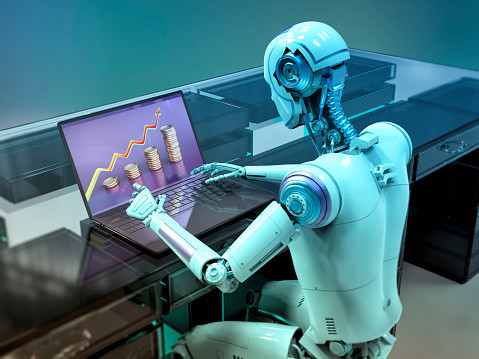
The accelerated adoption of generative artificial intelligence has fueled market growth this year.
However, as the initial excitement subsides, investors are now becoming more aware of the potential risks involved, requiring them to be cautious in selecting stocks.
Various sectors, including IT services, consulting, media, information, and education, are now being closely scrutinized by portfolio managers to evaluate the potential disruptions caused by AI.
While the overall impact on corporate profitability is expected to be highly positive, analysts caution that, aside from prominent winners like Nvidia in the chip sector, there could also be losers across Europe and the U.S.
According to McKinsey consultants, the adoption of generative AI has the potential to contribute $7.3 trillion in value annually to the global economy.
They further predict that by 2030 to 2060, around half of the current work activities could be automated.
While this projection holds significant promise, it also poses substantial challenges for corporations. Implementing AI at such a scale would require companies to address issues such as workforce redundancies and the need to redefine their business models in order to fully capitalize on AI's potential, The National News reported.
"It's not a given that AI will only have a positive impact. There could be a deflationary effect," said Gilles Guibout, who helps manage over 820 billion euros ($900.44 billion) as head of European equities at AXA Investment Managers in Paris.
The potential consequences of reduced sales growth and share price underperformance are particularly relevant for companies facing strong competition or relying on headcount-dependent growth.
These companies may experience challenges in adapting to the changing landscape brought about by AI, which could impact their financial performance and market position.
As the adoption of AI progresses, there is a possibility that clients may negotiate price reductions.
Additionally, new market entrants with leaner staff structures could potentially erode the market share of established players who are occupied with reimagining their processes.
"Take IT services: if one hundred people are no longer needed for coding, but only half or a third of that, customers will be asking for lower prices," said Guibout.
According to a recent survey conducted by Bank of America in June, 29% of global investors do not anticipate AI to lead to increased profits or job growth. In contrast, 40% of investors do expect a positive impact from AI adoption.
Concerns surrounding AI have already had tangible effects on various markets. Companies such as Teleperformance, a French outsourcing firm, and Taskus, a U.S.-based company managing call centers and other vulnerable services, have experienced share price declines of approximately 30% this year.
Similarly, in the education sector, UK-based Pearson faced a 15% drop in share price in May after its U.S. counterpart Chegg, which has declined by 62% this year, highlighted reduced customer growth due to significant student interest in the Microsoft-backed ChatGPT bot.
Shortly after the incident, Pearson conducted a conference call to provide insights into its AI strategy, indicating increasing investor interest in understanding how companies are managing the transition.
Teleperformance, a multinational company with a workforce of 410,000 employees across 170 countries, held its AI investor day last Wednesday, demonstrating a proactive approach to addressing investor concerns.
Certain analysts argue that the declines in share prices have been disproportionately severe in specific cases, amplifying concerns about future earnings growth.
"There's a lot of focus on the risks that generative AI can bring. This has ultimately become a bit overdone," said Thomas McGarrity, head of equities at RBC Wealth Management.
Some professionals in the information and data provider sector express confidence in their ability to incorporate generative AI into their products, particularly those with access to proprietary data.
However, others maintain a cautious stance, suggesting that the rapid adoption of cheaper AI-powered solutions could potentially hinder growth once backlogs of more traditional services are cleared.
Andrea Scauri, a portfolio manager at Lemanik, admitted that the uncertainty surrounding AI has dissuaded him from investing in certain IT services stocks, despite their attractive valuations.
Conversely, Scauri believes that larger players like Accenture are better positioned to navigate the transition and allocate the necessary capital expenditure (capex).
Amidst its announcement of 19,000 job cuts earlier this year, Accenture revealed a $3-billion investment plan dedicated to strengthening its AI initiatives. This move has contributed to a 19 percent increase in the company's shares in 2021.
Similarly, French peer Capgemini has seen a 13 percent rise in its shares. Companies like Relx, which deal with regulated information, are also perceived as having less vulnerability to potential AI-related challenges.
Cristina Matti, a portfolio manager specializing in small and midcaps at Amundi, emphasized that investors seeking exposure to AI should be discerning rather than adopting an indiscriminate investment approach.
"Do not buy just for the sake of gaining exposure. It's important to do your homework," she said.
© 2025 Latin Times. All rights reserved. Do not reproduce without permission.




